Creativity, Discovery, Engagement
Ignite Your Curiosity
Biological science students are interested in living organisms. They are inquisitive and have the desire to learn more about how different species function, evolve and interact. If you’re curious about the natural world, look no further than Augusta University.

Biological Sciences
The Department of Biological Sciences mission is to stimulate interest in scientific inquiry and exploration into all living organisms.
Student in the Biological Sciences undergraduate program are taught the fundamentals of biology in the classroom and participate in hands-on learning laboratories. They choose from various areas of interest, including ecology, genetics, evolutionary biology, botany, herpetology, microbiology, physiology, microbiology, cell and molecular biology, zoology, marine biology, and more. Experienced faculty members encourage all students to participate in biological sciences research to gain practical experience to enhance their professional development and increase employment potential.
Students will leave AU with the skills they need for future employment in biological sciences. They may also decide to further their education in a graduate or professional program, such as medicine, dentistry, veterinary medicine, or pharmacy.
Creativity, Discovery, Engagement
Programs Designed for Impact
Students can choose from one of our four outstanding biological science majors, each with their own rigorous academic curriculum.
Biology
Study the fundamentals of biology in the classroom and in the lab, with specialized opportunities to participate in research in areas including ecology, genetics, microbiology, plant physiology and aquatic biology.
Cell and Molecular
Explore the functions of genes, proteins and cells at the molecular level, and through lab experiences, you’ll learn state of the art techniques like polymerase chain reaction (PCR), genetic cloning and protein isolation.
Biomolecular Science - MS
Gain interdisciplinary knowledge of the biological systems and responses to bioactive compounds at a physiological, cellular, and molecular level.

Why Research is Important
Biological Sciences Research
Undergraduate research allows students to acquire a broader appreciation for the biological sciences. In addition to coursework, students have multiple opportunities to get involved in departmental research projects directed and supervised by faculty members.
Students are able to present their findings on campus and at regional and national meetings. Meetings include the Georgia Academy of Sciences Conference, the Association of Southeastern Biologists (ASB) meeting, the Southeastern Estuarine Research Society (SEERS) meeting, and the Southeastern Regional Yeast Meeting (SERYM), among others.
Get Involved
Providing a community for students interested in the biological sciences to gather and exchange ideas and to learn more about our field of interest
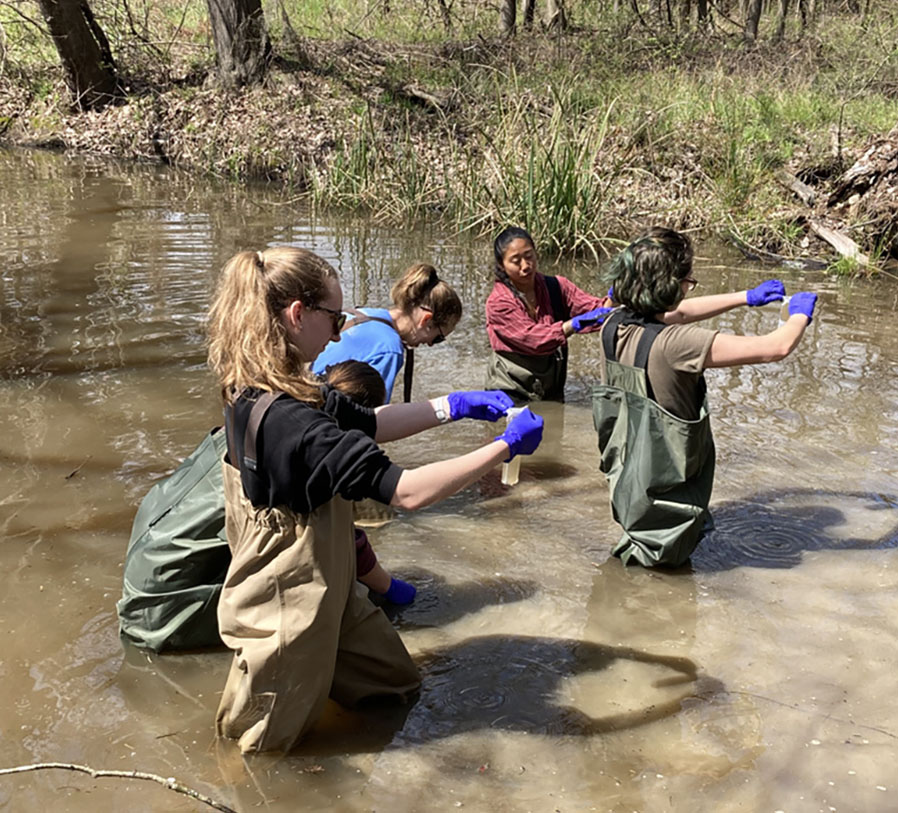
Student Opportunities
Clubs and associations have proven to enrich the lives of our students and the overall experience at Augusta University

Research Opportunities
Research opportunities are available for both undergraduate and graduate students at the College of Science and Mathematics.
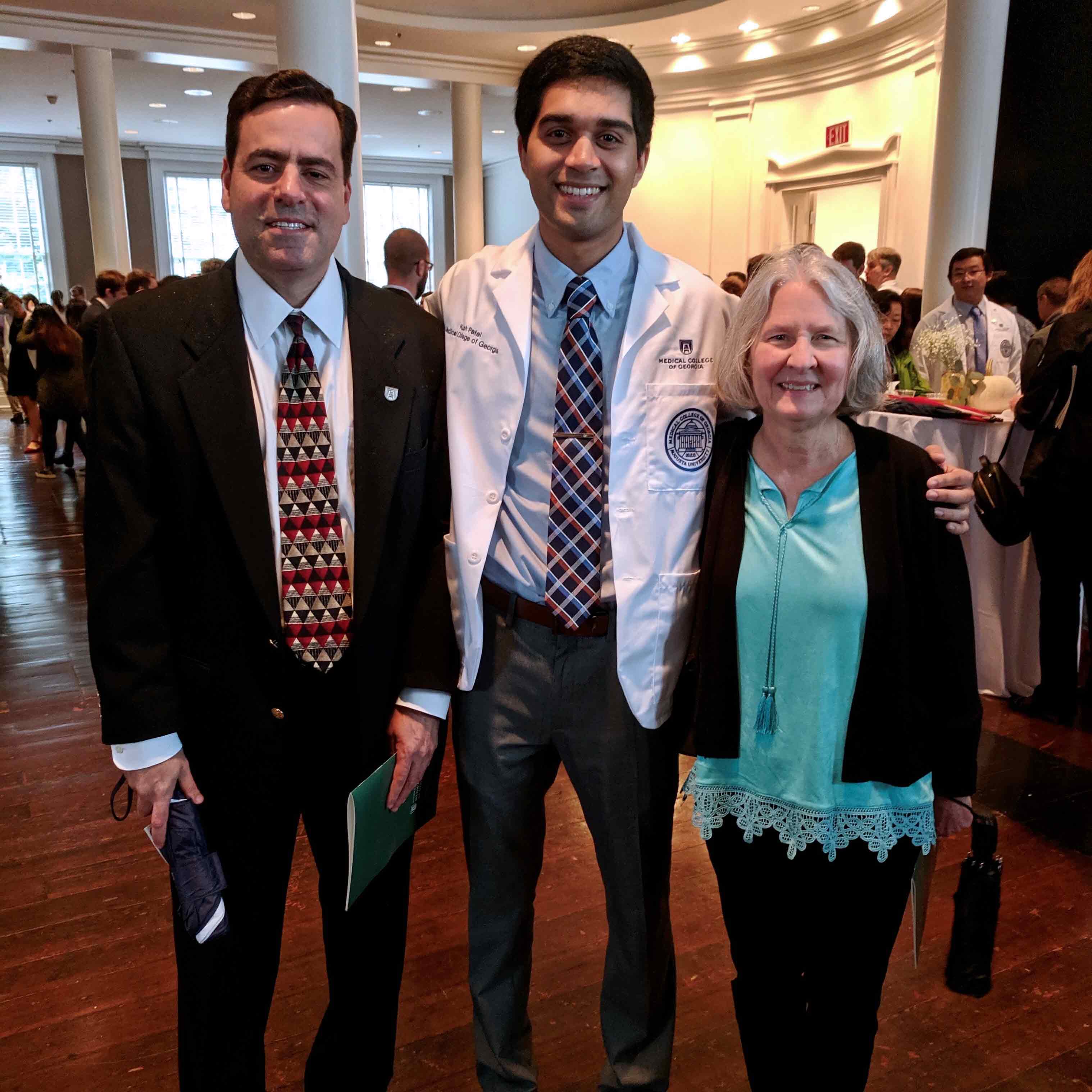
Professional Scholars Programs
Outstanding students have the opportunity to achieve their BS-MD or BS-DMD degrees in only seven years
News & Events
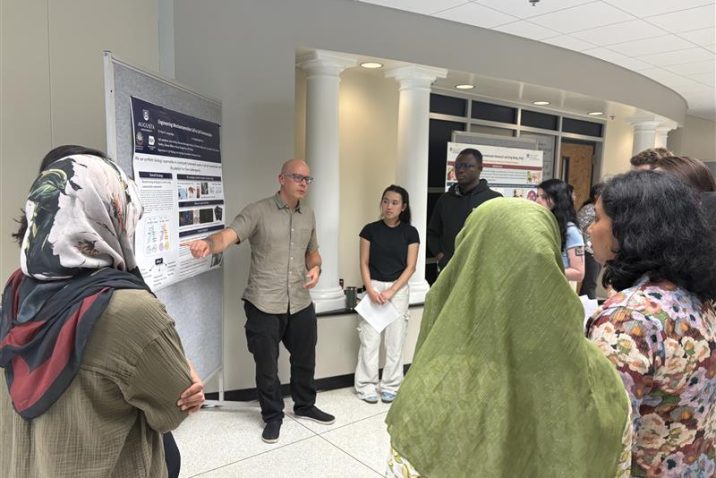
College of Science and Mathematics professor awarded NSF CAREER Award
College of Science and Mathematics professor awarded NSF CAREER Award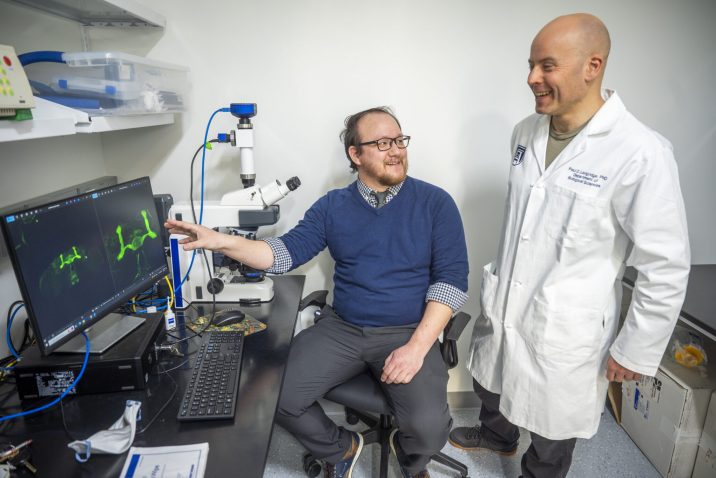
AU researchers studying the way cells talk to unlock new treatments
AU researchers studying the way cells talk to unlock new treatments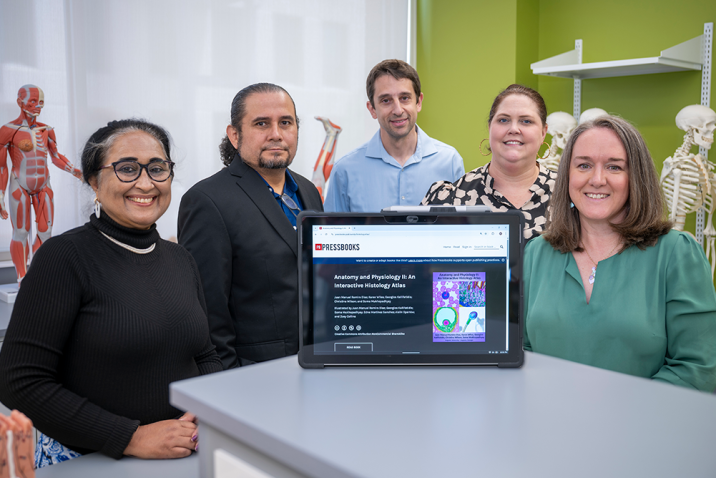
Free, online textbooks created by AU faculty change the game for students
Free, online textbooks created by AU faculty change the game for studentsCreating Opportunities
The College of Science and Mathematics provides students with strong foundations in the sciences as well as preparation for careers, citizenship, and a life-long love of learning. We are committed to providing experiences promoting scientific inquiry and discovery and dedicated to creating opportunities for intellectual growth and community involvement.